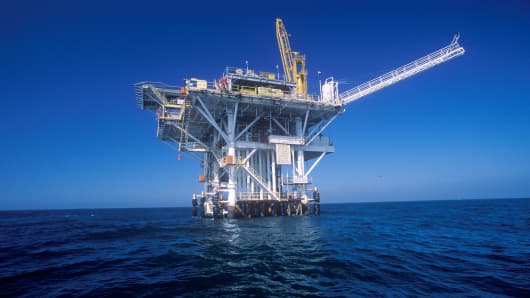
Joe Sohm | Getty Images
Back in January, the Trump administration decided to expand oil drilling in the United States by issuing federal leases that will allow oil drilling to take place in a majority of the oil reserves off the American coastline. However, California Governor Jerry Brown has created new legislature that will prohibit the building of new oil drilling infrastructure within state waters, which includes all of the water three miles off the coast. Still, the federal government owns the water 3 to 231 miles away from the coast, but without the ability to build within the three miles to shore, pipes cannot be built to easily transport the oil.In California, legislators are much more environment-conscious and invested in protecting the beaches and marine wildlife, leading to an interest in renewable energy instead of dirty energy from oil. According to the Public Policy Institute of California, 69% of Californian residents are against drilling for oil nearby. Californians are not alone, as all three west coast states are against offshore drilling.
Drilling in the ocean brings up a long-term environmental concern of pollution, energy, and conservation.
Is it a good idea to drill for short-term economic gains?
Is it better to invest in renewable resources?
Is this oil drilling conflict a good example of a good balance of states rights and federal power, or do you think that either the states or the federal government has too much power in this circumstance?
Sources:
https://www.cnbc.com/2018/09/08/california-gov-brown-signs-legislation-to-block-new-offshore-drilling.html
http://www.latimes.com/local/lanow/la-me-offshore-drilling-20180908-story.html
http://time.com/5088449/donald-trump-oil-drilling/
http://www.ppic.org/blog/majority-opposition-drilling-includes-coastal-republicans/
2 comments:
The reason that many long-term environmental issues are not being addressed is due to the fact that it doesn't pose a threat now, so it doesn't need to be addressed now. The thinking is, since this won't be an issue anytime soon, why can't we just let the next generation of politicians deal with it?
Offshore drilling is currently regulated by the Bureau of Safety and Environmental Enforcement (BSEE), which is a federal institution, but the oil rigs themselves are privately owned. I assume that the BSEE has the right to regulate these companies under the commerce and elastic clauses of the Constitution. Yet, the lack of national policy on oil drilling allows states to make their own policies. This makes sense because each state occupies different geographies. Overall I think the balance of power between federal and state governments is reasonable.
Source: Oil and gas regulation in the United States: overview
I mean, it makes sense that those who live near the coast would be against offshore drilling -- if the oil rigs explode, contamination would undoubtedly affect west-coast residents the most. I’d say the conflicting interests of California and the federal government definitely illustrates the continual tension between federal and state governments. Now, as a resident of the Bay Area, I definitely do not want to see an expansion of offshore drilling, but at the same time, I can see how offshore drilling can be categorized under “regulating interstate commerce” (oil is a necessary commodity in the US that all states require) as a part of the Constitution's commerce clause as Andre previously mentioned.
Post a Comment